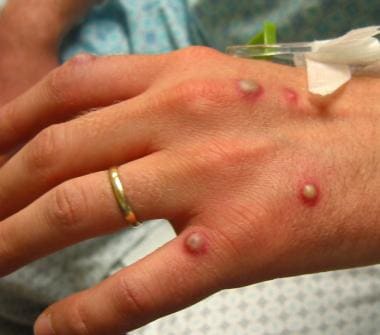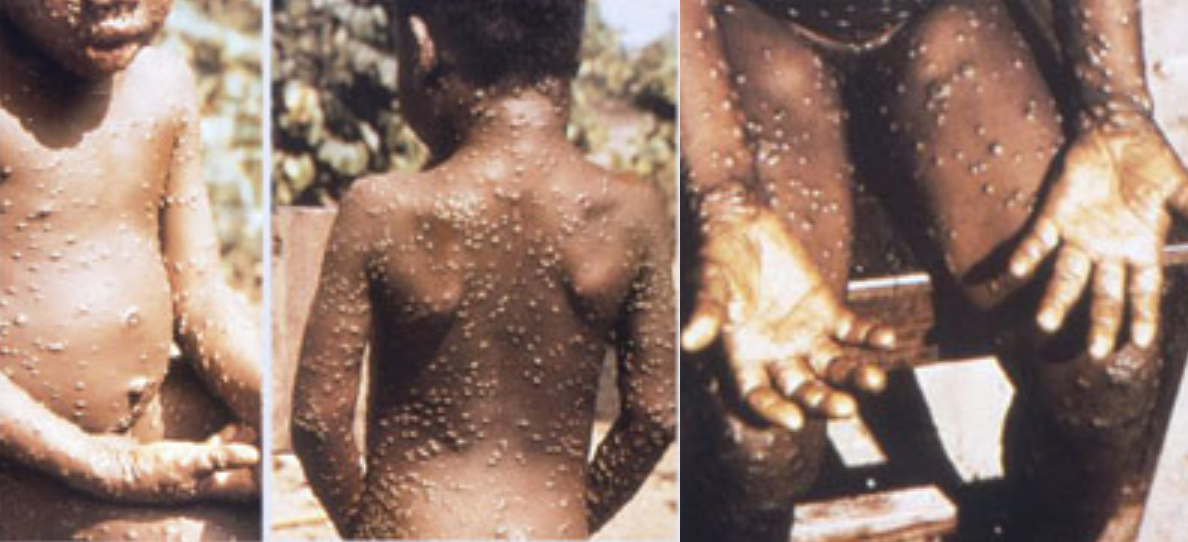Singapore confirms case of monkeypox, patient's close contacts quarantined

The patient is a 38-year-old Nigerian who arrived on Apr 28 and tested positive for the virus on May 8, said the Ministry of Health (MOH) in a media release on Thursday (May 9).
Advertisement
He is in stable condition in an isolation ward at the National Centre for Infectious Diseases (NCID), the ministry added.
Monkeypox is a rare disease caused by a virus that is transmitted to humans from animals mainly in central and western Africa. This happens when a person comes in close contact with infected animals such as rodents.
Human-to-human transmission can happen from close contact with infected respiratory tract secretions, skin lesions of an infected person or objects recently contaminated by patient fluids.
Symptoms of monkeypox include fever, aches, swollen lymph nodes and skin rash. It can cause serious complications such as pneumonia or even death in some cases.
"The patient reported that prior to his arrival in Singapore, he had attended a wedding in Nigeria, where he may have consumed bush meat, which could be a source of transmission of monkeypox virus," said MOH.
The man had been staying at 21 Lorong 8 Geylang, the address of Hotel 81 Orchid, before he was hospitalised. He had also attended a workshop at 3 Church Street on Apr 29 and Apr 30.
On Apr 30, he developed fever, muscle ache, chills and skin rash, said MOH, adding that the man said he remained in his hotel room most of the time between May 1 and 7.
He was taken to Tan Tock Seng Hospital by ambulance on May 7, and was referred to NCID that same day.
CONTACT TRACING
MOH said it conducted contact tracing and identified 23 people who came into close contact with the patient.
They include 18 people who attended the same workshop, one staff member of the workshop venue and four hotel employees.
"Close contacts of the patient have been assessed by NCID and offered vaccination, which can prevent the disease or reduce the severity of symptoms," said MOH.
"As a precautionary measure, they will be quarantined and monitored for 21 days from their date of exposure to the patient."
The risk of monkeypox spreading within the community in Singapore is low, said executive director of NCID Professor Leo Yee Sin.
"There is no evidence to date that human-to-human transmission alone can sustain monkeypox infections in the human population," Prof Leo said.
"On average, each infected person transmits the infection to less than one other person. This is much less infectious than the common flu. The chain of transmission can also be broken through contact tracing and quarantine of close contacts.”
MOH added that the disease is usually self-limiting, with most patients recovering within two to three weeks.

SINGAPORE: A case of imported monkeypox infection has been confirmed in Singapore.The patient is a 38-year-old Nigerian who arrived on Apr 28 and tested positive for the virus on May 8, said the Ministry of Health (MOH) in a media release on Thursday (May 9).
Advertisement
He is in stable condition in an isolation ward at the National Centre for Infectious Diseases (NCID), the ministry added.
Monkeypox is a rare disease caused by a virus that is transmitted to humans from animals mainly in central and western Africa. This happens when a person comes in close contact with infected animals such as rodents.
Human-to-human transmission can happen from close contact with infected respiratory tract secretions, skin lesions of an infected person or objects recently contaminated by patient fluids.
Symptoms of monkeypox include fever, aches, swollen lymph nodes and skin rash. It can cause serious complications such as pneumonia or even death in some cases.
"The patient reported that prior to his arrival in Singapore, he had attended a wedding in Nigeria, where he may have consumed bush meat, which could be a source of transmission of monkeypox virus," said MOH.
The man had been staying at 21 Lorong 8 Geylang, the address of Hotel 81 Orchid, before he was hospitalised. He had also attended a workshop at 3 Church Street on Apr 29 and Apr 30.
On Apr 30, he developed fever, muscle ache, chills and skin rash, said MOH, adding that the man said he remained in his hotel room most of the time between May 1 and 7.
He was taken to Tan Tock Seng Hospital by ambulance on May 7, and was referred to NCID that same day.
CONTACT TRACING
MOH said it conducted contact tracing and identified 23 people who came into close contact with the patient.
They include 18 people who attended the same workshop, one staff member of the workshop venue and four hotel employees.
"Close contacts of the patient have been assessed by NCID and offered vaccination, which can prevent the disease or reduce the severity of symptoms," said MOH.
"As a precautionary measure, they will be quarantined and monitored for 21 days from their date of exposure to the patient."
The risk of monkeypox spreading within the community in Singapore is low, said executive director of NCID Professor Leo Yee Sin.
"There is no evidence to date that human-to-human transmission alone can sustain monkeypox infections in the human population," Prof Leo said.
"On average, each infected person transmits the infection to less than one other person. This is much less infectious than the common flu. The chain of transmission can also be broken through contact tracing and quarantine of close contacts.”
MOH added that the disease is usually self-limiting, with most patients recovering within two to three weeks.
Last edited:








